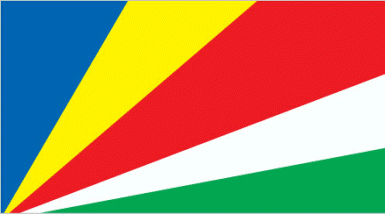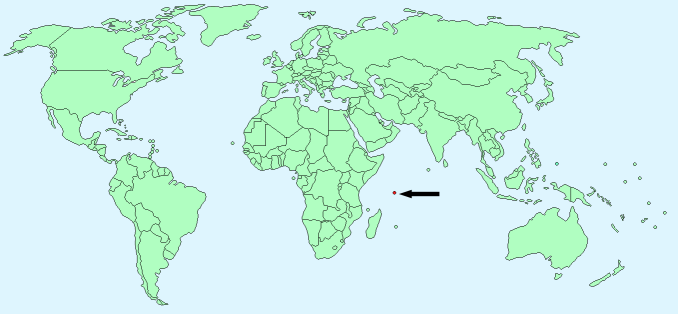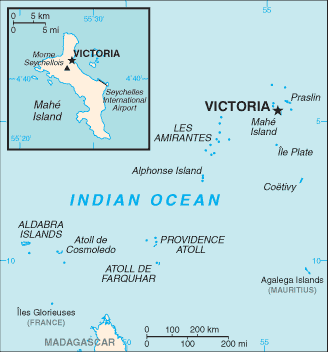Seychelles


Continent – Africa
Region – Southern
Size – 455 km²
Geography – archipelago of volcanic islands and coral reefs
Language – Seychellois Creole (official), English, French
Religion – Roman Catholic 76.2%, Protestant 10.6%, Hindu 2.4%, Muslim 1.6%, other 9.2%
Monetary Unit – Seychellois rupee
Natural Resources – fish
Agriculture – coconuts, cinnamon, vanilla, sweet potatoes, cassava (manioc, tapioca), copra, bananas; tuna
Industry – fishing, tourism, beverages

Neighbouring Countries – None
Population – 92,430 (2015 estimate)
Population Growth Rate – 0.83%
Average Life Expectancy – 74.49
Capital City – Victoria (26,000)
Highest Mountain – Morne Seychellois (905 m)
Longest River – No rivers
Climate – tropical – 24°C – 30°C all year
Yearly Rainfall – 300 cm (approx) mostly October to February
Plant Life – scrub, Coconut coco-de-mer, bananas, vanilla, avocado, breadfruit, banana, cinnamon, mango, papaya, patchouli, and pineapple
Animal Life – giant tortoise, frogs, lizards, gecko, chameleon, snakes
Bird Life – Seychelles magpie robin, Seychelles warbler, Aldabra drongo, Seychelles magpie robin, Seychelles paradise flycatcher, Seychelles fody, Seychelles scops-owl, Seychelles white-eye, Seychelles swiftlet, Seychelles kestrel, Seychelles blue pigeon, Seychelles bulbul and Seychelles sunbird, sooty tern, noddies, frigate birds
Fish Life – crabs, crustaceans, turtles, sea fish, sharks, swordfish, porpoises
Harvard Reference for this page:
Heather Y Wheeler. (2015). Seychelles. Available: https://www.naturalhistoryonthenet.com/Facts_Figures/Country_Facts/seychelles.htm. Last accessed Tuesday, July 19, 2016
Facts and Figures Pages
